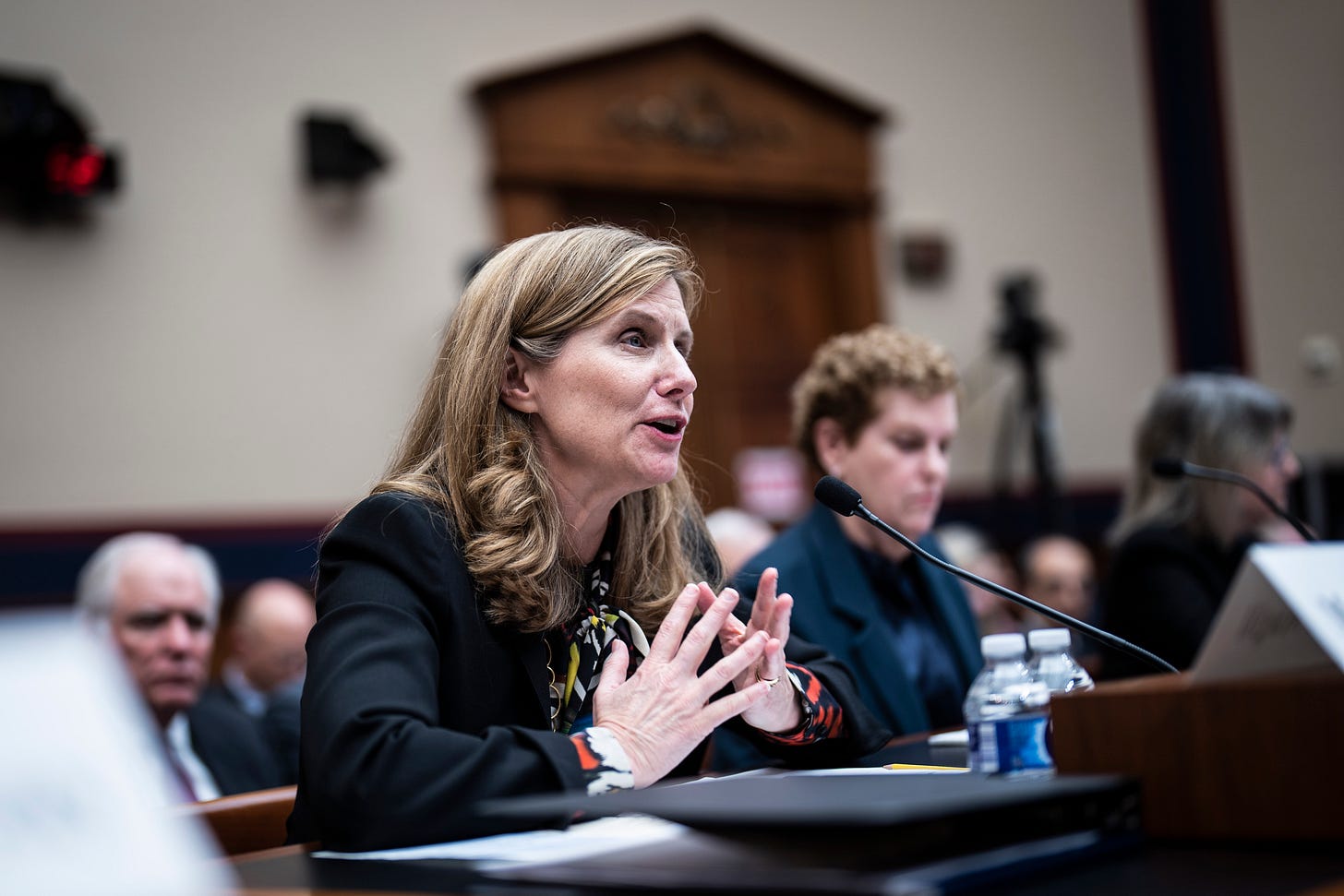
University of Pennsylvania president Liz Magill has recently resigned after a carefully lawyered answer to a straightforward question ended up offending everyone anyway. The question, put to her by Representative Elise Stefanik, was whether on-campus calls for the genocide of Jews violated the school’s conduct policy.
Her response? “It is a context-dependent decision, Congresswoman.”
It seems that many people were taken off-guard by Magill’s response. Michael S. Roth, the president of Wesleyan University, stated that, “College presidents are supposed to be moral leaders, not evasive bureaucrats.” The assumption here being that it shouldn’t be possible for someone in Magill’s position to miss the ball that completely.
What people don’t seem to understand is that college presidents only get to where they are by being evasive bureaucrats, as well as highly competent administrators. The administrative class — fast approaching a matriarchy — is educated, organized, and freakishly adept at avoiding direct confrontation. They’re also stone-cold mercenaries. Which explains how both MIT and Harvard presidents could sit like dehydrated moths while their sister-in-arms burst into flames next to them.
This is also why Magill snapped like a stale breadstick when confronted with an inescapable moral dilemma. It wasn’t because she’d been uniquely “overlawyered” for this particular case. It was because university presidents live out their professional lives in a permanent state of lawyerisms. They have mastered the art of scrying into the wind and wave of popular opinion and adjusting themselves accordingly. Stripped of their bureaucratic padding, we see their moral anemia in stark relief and start to realize the awful truth.
Our nation is run by these people.
Now-also-resigned chairman Scott Bok wasn’t wrong in accusing Magill of “provid[ing] a legalistic answer to a moral question.” Where he was wrong was in declaring such a response “a misstep.” Painting your living room cream instead of eggshell is a misstep. Wearing tube socks with thong sandals is a misstep. Stating publicly that a situation might potentially arise in which calls for genocide may be appropriate is about as far from misstep as it is humanly possible to make.
And yet here we are. And here we will stay. Because although requiring Magill’s resignation was absolutely appropriate, it will also absolutely not resolve Penn State’s ravaged foundations.
Up until now, academic institutions have been able to limp along under the leadership of administrative executives, even while the foundations were fast decaying underneath them. As long as the student body remained ideologically and ethnically homogenous, as it has for the past century, they remained relatively easy to control. Introduce a pretzel mix of cultures and ethnicities and suddenly you’ve got a highly-unstable concoction in which the effectiveness of administrative leadership plummets to almost zero.
Administrators, bless their hearts, do administration. They excel at keeping budgets, crafting schedules, writing memos, and sending emails. All needful things in their time and place. The problem is that Magill’s compensation ($1.2 million), reflects the responsibilities of a presidential position, not an administrative one. A presidential position will, at times, involve presidenting.
Penn State’s problem, as MIT’s and Harvard’s problem, is not organizational. It is moral. It moral because the “clients” they serve are moral beings. By this I don’t mean student bodies are uniformly virtuous, but that they will not be content to sit back and be organized into groups. Lions gonna hunt, lemurs gonna jump, and human beings are going to believe something. You can’t suppress that, you can only direct it. The rise in radical ideology we’ve seen in recent years isn’t solely due to the infusion of diverse ideas, but the total absence of any moral direction. Yes, students must be held responsible for their words and actions. But can we really blame them in light of such devastating moral ambiguity in upper management? Can we really blame the crew when the captain is passed out in his cabin?
Sadly, this epidemic of “overlawyering” isn’t confined to academia. It’s in the church as well. Pastors and leaders, abandoning their prophetic responsibility, have adopted the role of quiet moralizers. You could listen to them for hours and never hear a demand, a declaration, a warning, an answer, or a call to repentance. You will never hear about the dangers of hell, salvation in Christ alone, or the infallibility of the Scriptures. There will be a careful avoidance of naming particular sins or of applying the Scriptures in any practical way. Few current issues will ever be scrutinized and held up against the straight rule of Scripture in the name of “not alienating people.”
It is a terrible thing for once-principled universities to lose their principles. But dark is the night indeed when the church of Christ loses her saltiness.



Oh my word YES!
and thank you for saying it right out loud!